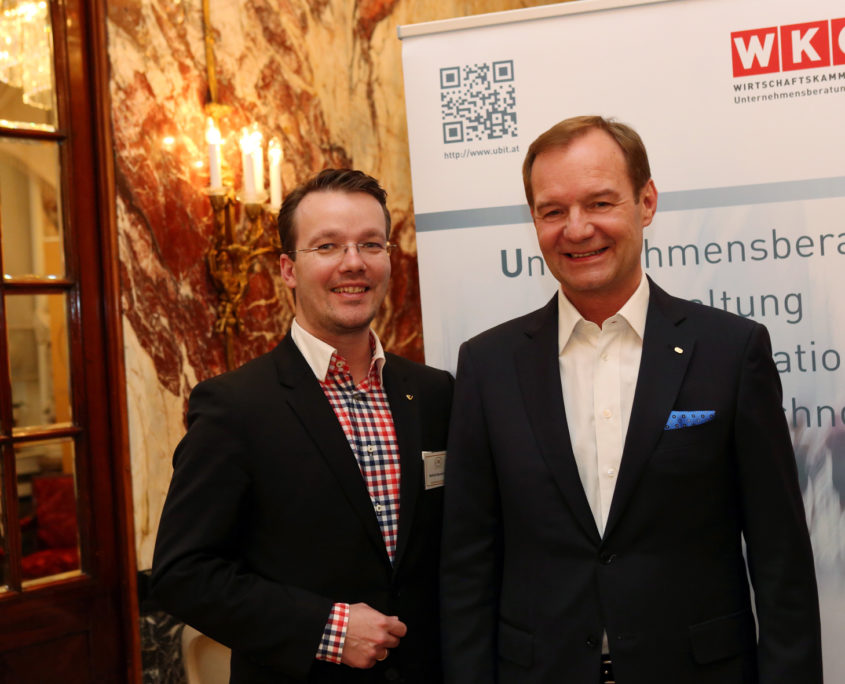If you want to be successful as Business Angels you need to get connected with founders and other investors. Events are listed according to date. If you miss one event, please give us a hint!
AUGUST
01.08.2017 – 2nd BMVI Startup Pitch, Germany, Berlin
It will take place on 1 August 2017 in the Federal Ministry for Transport and Digital Infrastructure (BMVI) in Berlin. The BMVI invites young entrepreneurs, start-ups and founders to present their ideas and solutions to high-profile representatives of large companies, who often invest in start-ups. The three most innovative teams also receive the prospect of 10,000 euros funding.
02.08.2017 – NPM: New Platform Marketing Germany, Hamburg
The NPM Conference is a one-day event dedicated to uncovering the newest chances and opportunities from all around the digital marketing universe. Whether it’s the latest approaches, trends or untapped channels, NPM (New Platform Marketing) delivers tangible insight and knowledge to advertisers, brands, publishers, influencers and anyone else looking for an edge in their marketing. www.omr.com
03.08.2017 – She loves Tech: Global Startup Competition Germany, Berlin
The She Loves Tech Global Startup Competition is designed to give the world’s most promising women entrepreneurs and women-impact startups a unique opportunity to showcase their businesses to a global audience of investors and influencers from the tech community.
16.08.2017-17.08.2017 – The Conference 2017 Sweden, Malmo
You can expect everything from brain scientists and activists to marketing experts and cool makers who’ll cover topics like UX, psychology, ai, marketing and so on. In the end, it all comes down to exploring our three main themes: Human behavior, new technology and how to make it happen.
23.08.2017 – Co-Found Berlin: Summer Event Germany, Berlin
After 39 successful events together, 3 years plus and more than 3,000 Members to date, Come celebrate our 40th event like no other. We’re honored to have created the Co-Founding event catergory and have been ranked by meet-up as the NUMBER ONE Co-Founding event in the World! Hosted by one of our sponsors atop Potsdamer Platz, with great food, drinks and the best panoramic terrace and view in Berlin.
Co-Found Berlin
31.08.2017 – Growth Marketing Summit Germany, Frankfurt am Main
World class optimizers meet at the growth marketing SUMMIT. Experience international top speakers like Gary Vaynerchuk, Chris Goward and Bryan Eisenberg, and get inspired by their experiences and methods. Experience a knowledge-packed business event with an entertaining factor! Look forward to an experience for all senses in a top location with top catering and live DJ! www.growthmarketingsummit.com
SEPTEMBER
06.09.2017 – 22. Handelsblatt Banking Summit Germany, Frankfurt
Meet over 500 decision-makers from banking, fintech, media and compliance sectors. Listen to industry movers and shakers, and opinion leaders. Be inspired by fintechs and awkward and intransigent thinkers. Engage digitally, using apps for questions, live surveys and networking. Network at the Future Banking World event and the evening event in the Palmengarten.
Banking Summit Frankfurt
06.09.2017-07.09.2017 – Pirate Summit Germany, Cologne
An event that links entrepreneurs with venture capitalists and business angels.
www.piratesummit.com
08.09.2017 – Startupnight 2017 Germany, Berlin
Startupnight is one of Europe’s largest startup events, where startups present themselves to corporates, investors and potential customers. It will take place for the 5th time on Friday, September 8th 2017 in the heart of Berlin with 5000+ participants and 250+ startups from around the world in categories like mobility, energy, communication, AI, AR/VR, health and many more. www.startupnight.net
14.09.2017-17.09.2017 – New Mobility World Germany, Frankfurt am Main
The New Mobility World 2017 is the place at the IAA where pioneers meet and innovation comes to life. Digital experts, technology companies, startups, disruptors and the automotive industry come together to discuss and build the future of mobility.
www.newmobility.world
15.09.2017-17.09.2017 – Innospace Weekend 2017 Germany, Cologne
We invite all aspiring entrepreneurs to join us over an extended weekend in Cologne where you will where you will create a startup in just 60 hours. Whether you are a student, graduate, or young professional or want a change of career direction, INNOspace Weekend is for you!
www.innospace-weekend.de
18.09.2017-20.09.2017 – SaaStock Ireland, Dublin
SaaStock 2017 will be the biggest conference in Europe for global SaaS companies of all stages to meet and network. If you want to build your sales pipeline and meet with SaaS investors, then SaaStock is the place to be. Whatever your objective for attending Europe’s leading SaaS Marketplace, the outcome is growth for your SaaS Business.
www.saastock.com
19.09.2017 – Signal London 2017 UK, London
If you’re a developer, product manager, enterprise architect, CTO or CEO, then SIGNAL London is the event to be at on Sept 19th. This year, SIGNAL will be opening up three content tracks filled with inspiring developer and strategy sessions, there will be loads of networking with more than 600 liked minded Doers, and the legendary $BASH party will arrive in London for the first time! www.twilio.com
19.09.2017-21.09.2017 – Zukunft Personal Messe/Start-Up Village Germany, Cologne
The start-up area also has plenty of surprises up its sleeve. A new spirit of change can be sensed at the exhibition stands! The challenges of the modern working world require new technologies, recruiting approaches and working methods – this has spurred many young entrepreneurs into action. In the Start-up Village HR, young entrepreneurs show you the new products they have developed at first hand.
www.zukunft-personal.de
21.09.2017-22.09.2017 – NEXT 2017 Germany, Hamburg
Two days, more than 1,300 digital minds, a vibrant and inspiring atmosphere: Join the conversation on how emerging technologies and digital products are shaping the world we live in – and explore what that implies for you and your business at NEXT Conference 2017 at Reeperbahn, Hamburg.
www.nextconf.eu
24.09.2017-26.09.2017 Bits and Pretzels, Germany, Munich – (recommend)
With 5.000 participants the biggest German startup event. You can get 10% discount with the promotion Code Venionaire.
bitsandpretzels.com
25.09.2017-26.09.2017 – Sigfox World IOT Expo Czech Republic, Prague
Sigfox, the world’s leading provider of connectivity for the Internet of Things (IoT), and SimpleCell, the exclusive Sigfox Operator in the Czech Republic invite you for the first Sigfox World IoT Expo, taking place in Prague, Czech Republic, on September 25th – 26th 2017.
OCTOBER
04.10.2017-06.10.2017 South Summit Spain, Madrid
South Summit is the leading Event from the south, connecting the most innovative entrepreneurs with the most important investors in the world and the corporations seeking to improve their global competitiveness through Innovation.
investors. southsummit.co
04.10.2017-05.10.2017 – IP Expo Europe UK, London
IP EXPO Europe is Europe’s number ONE IT event for those looking to find out how the latest IT innovations can drive their business forward.
06.10.2017-07.10.2017 – IdeaLab! – Germany, Vallendar (recommended)
The event is organized by the university WHU – Otto Beisheim School of Management in Vallendar, Germany. It offers Investor Speeddating, Workshops and Pitch Battles.
www.idealab.io
09.10.2017 – Shoptalk Europe Denmark, Copenhagen
Shoptalk Europe is the only large pan-European event for innovation in retail and ecommerce, and covers the evolution of how consumers discover, shop and buy. We fill a major industry gap by bringing together over 2,000 innovators, including 250+ world-class speakers, from all of Europe, all ecosystem stakeholders and all industry verticals.
www.shoptalkeurope.com
12.10.2017-13.10.2017 – herCAREER Germany, Munich
herCAREER the career exhibition for female graduates, women in specialist and executive positions and female founders. herCAREER contrasts with other career exhibitions due to the wide exhibition offers.
www.her-career.com
13.10.2017-14.10.2017 – Deutsche Gründer- und Unternehmertage DEGUT Germany, Berlin
The deGUT is the largest trade fair for start-ups and entrepreneurship in Germany. It provides information, advice and inspiration on starting off in the world of selfemployment and running an own business.
www.degut.de
16.10.2017 – WHS Startup Track 2017 Germany, Berlin
Held under the high patronage of Hermann Gröhe, Germany’s Federal Minister of Health, the WHS Startup Track 2017 is looking for outstanding ideas that have the potential to revolutionize healthcare and improve global health. It provides young entrepreneurs with access to world leaders in science, industry and politics, and gives them unparalleled opportunities to set up future collaborations and get to know potential mentors, investors and advisory board members. WHS Startup Track 2017
18.10.2017– Webrazzi Summit – Turkey, Istanbul
The most influential internet conference in Turkey.
www.summit.webrazzi.com
21.10.2017-22.10.2017 – Entrepreneurship Summit 2017 – Citizen Entrepreneurship Germany, Berlin
The Entrepreneurship Summit brings entrepreneurs, artist, scientist, etc. together to share, learn and to connect.
www.entrepreneurship.de
25.10.2017-26.10.2017 – The Business Booster by Innoenergy Netherlands, Amsterdam
TBB is a two-day international networking event that connects leading industries and bright minds from business start-ups, leading energy companies and SME’s to enable tomorrow’s sustainable energy solutions today.
25.10.2017-29.10.2016 – Os!o Innovation Week – Norway, Oslo
Oslo Innovation Week is a five-days series of events held in Oslo, Norway each October.With 61 events, 184 speakers, 100 pitches and 10700 visitors (in 2016) the Olso Innovation Week it is one of the biggest startup events in the north.
oiw.no
NOVEMBER
02.11.2017-03.11.2017 – NOAH 2017 London UK, London (recommended)
Focused on connecting capital with great companies and helping service providers to find relevant customers.
NOAH Berlin
06.11.2016-09.11.2017 – Web Summit, Portugal, Lisbon – (recommended)
Hugh startup event with more than 50k attendees with top-tier speakers and leading corporations participating.
www.websummit.com
15.11.2017 – Big Data London UK, London
Big Data London will host leading, global data and analytics experts, ready to arm you with the tools to deliver your most effective data-driven strategy.
www.bigdataldn.com
14.11.2017-16.11.2017 – Smart City Expo World Congress Spain, Barcelona
Over 16.000 participants and 420 speakers attended the event 2016. The congress will bring together over 400 global influencers and innovators to share knowledge, debate the challenges faced by our cities, encourage out of the box thinking and inspire a worldwide call for action in order to develop smarter and more sustainable cities.
www.smartcityexpo.com
23.11.2017-25.11.2017 – Zurkow Startup Festival Poland, Krakow
The Zurkow StartUp Festival connects the vibrant StartUp communities in Zurich and Krakow. Get inspired by interesting talks and workshops. Network in a relaxed atmosphere or enjoy live music by Swiss and Polish artists in one of our partner clubs.
www.zurkow.org
28.11.2017 – hub.berlin Germany, Berlin
hub.berlin is Europe’s interactive business festival for digital movers and makers. Key players of Europe’s leading industries, politics and 500+ startups come together in a unique environment to discuss, shape and experience the digital transformation.
hub.berlin
30.11.-01.12.2016 – SLUSH Finland, Helsinki
Slush brings together the leading actors of the global tech scene to Helsinki for something very special. Described by many as “Burning Man meets TED”, the event has grown in just a few short years to 17,500 attendees and 1 million live stream viewers.
www.slush.org
DECEMBER
06.12.2017-08.12.2016 – OEB 2017 Germany, Berlin
23rd global, cross-sector conference on technology supported learning and training.The conference is likely to attract over 2,200 education and technology professionals, entrepreneurs and policy-makers from over 100 countries.
oeb.global
Le Web France, Paris
The #1 European Internet event, where more than 4000 entrepreneurs, leaders, investors, bloggers and journalists gather together.
www.leweb.co



